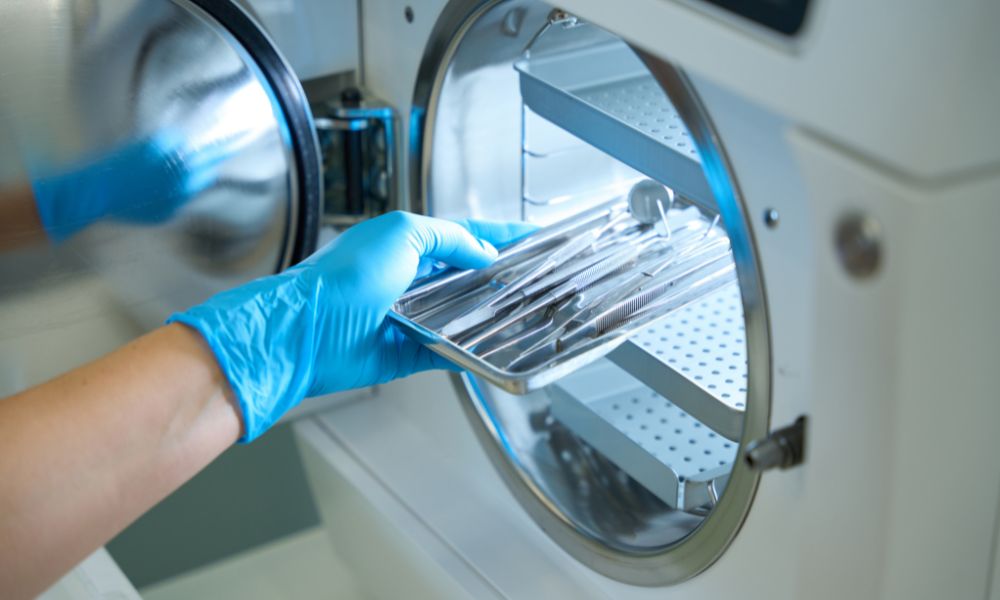Sterilization is a critical step in the production and proper reuse of medical devices to ensure the safety of both patients and healthcare professionals. Medical device manufacturers need to validate a minimum of one sterilization process to ensure harmful microorganisms have been eliminated from their device during reprocessing. However, the sterilization validation process itself is complex and requires compliance with strict regulations and requires the use of a number of United States and international standards. We will discuss the sterilization validation requirements and regulations for reusable medical device manufacturers and some important details to keep in mind.
Sterilization Methods
Before we can dive into validation standards, it’s important to understand what we’re examining. Medical device manufacturers have several options for sterilizing their reusable devices in healthcare settings, including liquid cold sterilant, ethylene oxide (EO), dry heat, steam, and hydrogen peroxide sterilization processes. HIGHPOWER has each of these sterilization processes in-house. Each process has its advantages and disadvantages and may be suitable for different medical devices. Manufacturers need to validate that their chosen sterilization method is effective in eliminating microorganisms and will not compromise the integrity of the device itself.
Validation Basics
The validation of a sterilization process involves testing the product in device under worst-case conditions to ensure that it remains sterile under normal use conditions. Typically, this involves a sterilization half-cycle, with a challenge of 10^6 of the most resistant organisms placed in the worse case locations of the device being validated. This is known as the 100 Percent Overkill Method or the Half-Cycle Method of sterilization efficacy testing. Depending on the device, manufacturers may also be required to conduct a series of other tests; these may include microbial challenge tests, thermal profiles, dry time tests, and shelf-life testing. These tests can help identify potential failures in the sterilization process and collectively provide data that demonstrates the effectiveness of the sterilization process. Having this data available allows savvy manufacturers to design medical devices that more easily allow for their sterilization.
Regulatory Requirements
Medical device manufacturers must comply with strict requirements and regulations when validating their sterilization process. The US Food and Drug Administration (FDA) requires manufacturers to provide evidence that their sterilization process is effective, safe, and reliable. Several standards can be used to validate a sterilization process; some of the more widely used standards are ANSI/AAMI/ISO 14937, ANSI/AAMI/ISO 17664-1, ANSI/AAMI/ISO 17665-1, and AAMI TIR 12. Failure to comply with these standards can result in delayed regulatory approval or even result in a product recall.
Documentation Requirements
It isn’t enough to simply know the legal guidelines; manufacturers also need to effectively document their validation procedures. Medical device manufacturers must maintain detailed records of their validation activities, including test protocols, results, and final reports. These documents are essential in demonstrating compliance with regulatory requirements, and they may need to be shown during audits or inspections. Manufacturers must also ensure their documentation is clear, concise, and easy to understand so that auditors can see exactly what a manufacturer’s device validation entailed.
Sterilization efficacy validation is a critical aspect of documenting the reprocessing instructions of reusable medical devices and requires compliance with strict safety guidelines. Partnering with an accredited sterilization testing laboratory can help ensure the manufacturer’s chosen sterilization process is documented as effective and safe for patients and healthcare professionals. At HIGHPOWER, we have over 30 years of experience in providing full-service medical device sterility testing validation. We’re confident that we can document the data that device manufacturers need to ensure their products meets the highest level of safety and efficacy.
